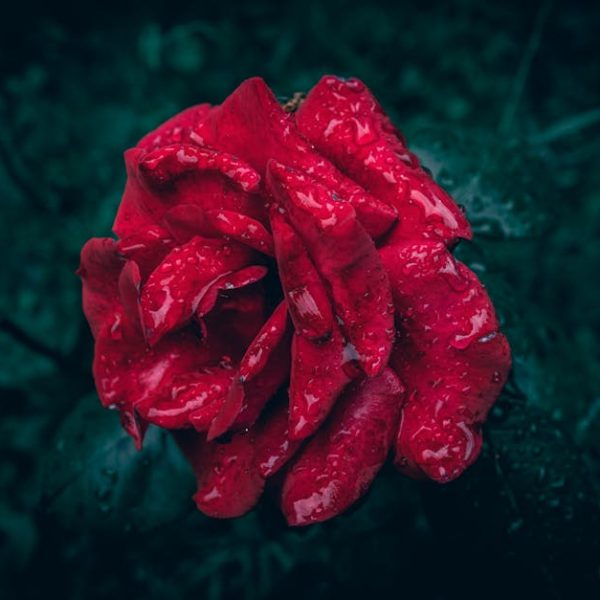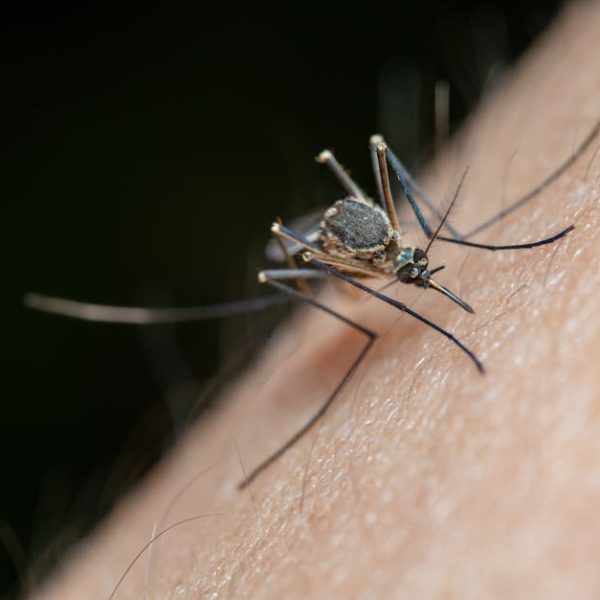Have you considered repelling mosquitoes with an item normally found in your kitchen pantry? Coffee grounds can serve as an effective natural mosquito repellent. The application of coffee grounds in mosquito control is rooted in an understanding of the insect’s life cycle and habits that tie in with the composition of coffee. Scientists have found that coffee grounds can disrupt mosquito breeding, contributing to a reduction of their population. This natural solution may soon replace your chemical-filled aerosol mosquito repellent.
The Science Behind Using Coffee Grounds to Repel Mosquitoes
Mosquitoes are more than just a nuisance. Their bites can spread numerous diseases such as malaria, dengue fever, and Zika virus. One of the most effective ways to reduce mosquito-related diseases is by controlling their breeding centers, which happens to be stagnant water. Cue the coffee grounds.
Mosquitoes undergo a life cycle that starts from an egg, leading to larva, then pupa, and eventually maturing into an adult. These early stages are aquatic and require stagnant water bodies. Coffee grounds, owing to their physical properties, sink into these water bodies and create a thin layer that suffocates mosquito larvae by blocking their oxygen supply.
Moreover, coffee also contains compounds that mosquitoes find highly repugnant. A key ingredient is caffeine, which has been found to kill mosquito larvae while being harmless to other wildlife. Thus, the use of coffee grounds not only limits the breeding of mosquitoes but also works as an excellent repellent.
How to Use Coffee as a Mosquito Repellent
Capitalizing on coffee’s natural anti-mosquito abilities is pretty simple:
1. After you brew a pot of coffee, save the grounds. Let them dry.
2. Once they’re dry, walk around your yard, particularly near any stagnant water or areas where you’ve noticed mosquitoes before. Sprinkle a thin layer of coffee grounds in these areas.
It’s important to note that coffee should not be the only method of mosquito control. While it can reduce the mosquito population, the effects are localized and best combined with other methods for comprehensive protection.
In comparison to commercial repellents, using coffee grounds is an inexpensive approach although it requires regular applications and may be washed away by heavy rains.
Benefits of Using Coffee Grounds as a Mosquito Repellent
Coffee grounds offer a safer, non-toxic, and environmentally friendly way to repel mosquitoes. Unlike many commercial mosquito repellents, coffee grounds do not release harmful chemicals into the environment or cause side effects such as skin irritation.
Upon serving their duty as a mosquito repellent, coffee grounds can then be recycled into your garden. Coffee grounds are a great source of nitrogen, which plants need for growth. In fact, many gardeners claim that adding coffee grounds to compost piles makes their plants greener and healthier.
Furthermore, using coffee grounds rather than chemical repellents contributes to an overall reduction in environmental pollution and waste production.
Potential Limitations and Concerns when Using Coffee Grounds
While coffee grounds are a great tool in your mosquito repellent arsenal, they do come with a few caveats. The effectiveness of coffee grounds as a repellent is localized. They require frequent application, especially after rain or sprinkler action, as they can be easily washed away.
The area coverage also may not be as extensive as with a commercial electric mosquito fogger which can cover a larger area. The smell of coffee is also quite strong, and while most people find it pleasant, some might not – and there’s also the potential for staining when used indoors.
Lastly, albeit rarely, some people might be allergic to coffee grounds – if you notice any discomfort or skin irritation, it would be best to discontinue its use.
Additional Natural Mosquito Repellents to Consider
There are plenty of other natural alternatives to keep mosquitoes at bay. Let’s take a look at a few of them:
- Plants: Citronella, lemon balm, marigolds, basil, and lavender are known to repel mosquitoes. They can be planted around your yard or placed in pots near windows.
- Essential Oils: Eucalyptus, lemongrass, and tea tree oils are all effective mosquito deterrents. You can add these oils to a spray bottle with water and use them like you would a normal bug spray.
- Garlic: Mosquitoes despise the smell of garlic. Crush a few cloves and mix them with water to make an easy deterrent.
Using multiple natural repellents can enhance their effectiveness. For example, sprinkling coffee grounds around your yard and using an essential oil spray on your skin and clothes will likely keep mosquitoes at bay better than relying on just one method.
Just remember, the best way to repel mosquitoes is to eliminate their breeding grounds by regularly draining any standing water around your property.
Conclusion
Coffee grounds, while a seemingly unorthodox tool, can be a preferable, natural alternative to commercial mosquito repellents. Affordable and eco-friendly, they offer a practical solution for reducing mosquito populations and protecting yourself from these pesky bugs. Despite certain limitations like the need for regular reapplication, its benefits to your garden and the wider environment make it a worthy consideration.
Just remember, the effectiveness of coffee grounds as a mosquito repellant can be enhanced by combining them with other natural methods. Stay safe and enjoy your mosquito-free time!
Key Takeaway:
- Coffee grounds can disrupt the breeding cycle of mosquitoes, contributing to population reduction.
- Coffee contains compounds like caffeine that have repellent properties against mosquitoes.
- Using coffee grounds is an inexpensive, non-toxic, environment-friendly alternative to commercial mosquito repellents.
- The application process involves saving coffee grounds post-brewing, drying them, and then sprinkling in areas likely to attract mosquitoes.
- While effective in local areas, the use of coffee grounds needs to be supplemented with other mosquito control methods for comprehensive protection.
- Despite potential limitations, such as the need for frequent reapplication especially post rain, the positive impact it has on the garden and environment makes coffee grounds a worthy natural solution.
As coffee lovers, who knew that our love for coffee could extend to repelling mosquitos! Mother nature has generously blessed us with natural remedies that can help keep our environment mosquito-free. Don’t hesitate to explore them and remember, every small steaming cup of coffee can make a big difference in your backyard.
FAQs
Q: Can I use other forms of coffee such as instant coffee or coffee beans to repel mosquitos?
A: It’s recommended to use spent coffee grounds. The brewing process likely enhances the properties that help repel mosquitoes. There’s no science to support instant coffee or coffee beans hold the same repellent properties.
Q: Is it safe to use coffee grounds to repel mosquitos if I have pets?
A: Yes. Coffee grounds are safe for pets. However, ensure they don’t ingest a large amount as caffeine can be harmful to pets in large quantities.
Q: Can coffee grounds be used to repel other insects?
A: Some homeowners have found that coffee grounds also repel ants, slugs, and snails, although there is less scientific research to back this up.
Q: Will coffee grounds affect the pH level of my soil?
A: Coffee grounds can slightly acidify your soil. However, their impact is usually minimal and won’t affect most plants unless used excessively.
Q: What do I do if I experience an allergic reaction to coffee grounds?
A: Stop using them immediately and wash the affected area with soap and water. If symptoms persist, seek medical advice.
Remember, sharing is caring! If you found these insights on using coffee grounds as a natural mosquito repellent helpful, don’t keep it to yourself. Share this article with those who’d benefit and explore more informative posts on our website.






